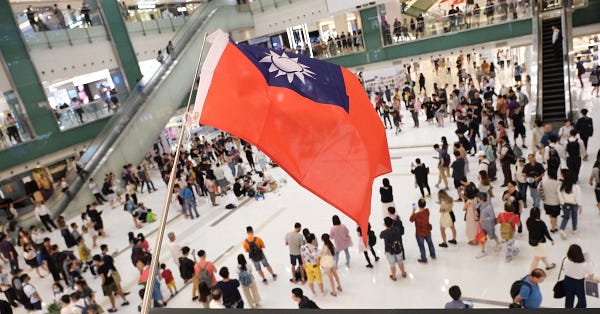The songs of Hong Kong


It’s been one year since the current wave of pro-democracy protests started in Hong Kong, and it was marked with flash mobs, a week after a Tiananmen Square anniversary vigil successfully defied a police ban. And while Hong Kong’s last British leader calls China’s agenda for it “Orwellian,” further preparations appear to be well underway:
Hong Kong’s legislature recently approved a bill that makes it illegal to insult the Chinese national anthem. Meanwhile, the Standard Chartered and HSBC banks are facing a growing backlash over their support for China’s security law for Hong Kong. American Secretary of State Mike Pompeo singled out HSBC for caving to Beijing.
The world’s main enemy


Growing tensions in the Himalayas have become just one of the fronts upon which China is employing a strategy of disinformation. The European Union is also criticizing social media tactics related to Beijing planting falsehoods on online platforms.
But these tactics are getting new pushback in Australia, after word of a warning to Chinese students that they won’t be safe studying there. China’s broader campaign against the land Down Under continues, to the point where U.S. Republican senator Rick Scott is urging Australia to join America to help win this new “cold war” together.
Documents filed with the U.S. justice department show nearly $20 million was paid between the Washington Post and Wall Street Journal to add a supplement from the state media China Daily. The revelation coincides with Harvard professor Charles Lieber’s indictment for allegedly false statements about secret work in Wuhan.
Do you live in part of the world where you’ll still free to share China-skeptical content on social media? Do it for those who cannot. 👇
Dissecting the coronavirus
While disputing that it was already spreading in Wuhan last summer, Beijing’s own white paper about five months with COVID-19 said little about its early response to the coronavirus outbreak while denying any cover-up and shifting blame elsewhere. Regardless, doing business in China has become less appealing to some companies.
Foolish pounds of Huawei
Two decades of doing business in the U.K. is cause for promotion by the tech company waiting on a reassessment of its role in the 5G infrastructure, to the chagrin of the U.S. A former chief of Canada’s spy agency, Richard Fadden, nonetheless believes that a ban on Huawei would have limited consequences for the Five Eyes nations.
The last word, for now
Beijing exerted significant pressure on a Serbian soccer team to dump the son of an outspoken critic of the commuist regime. The Serbian club relented and cut Hao Runze after criticism of the CCP by his father Hao Haidong earlier this month. For its part, the team denied bending to political pressure from China.
The China Letter will return next week. If you’re not subscribed yet, do it here:














